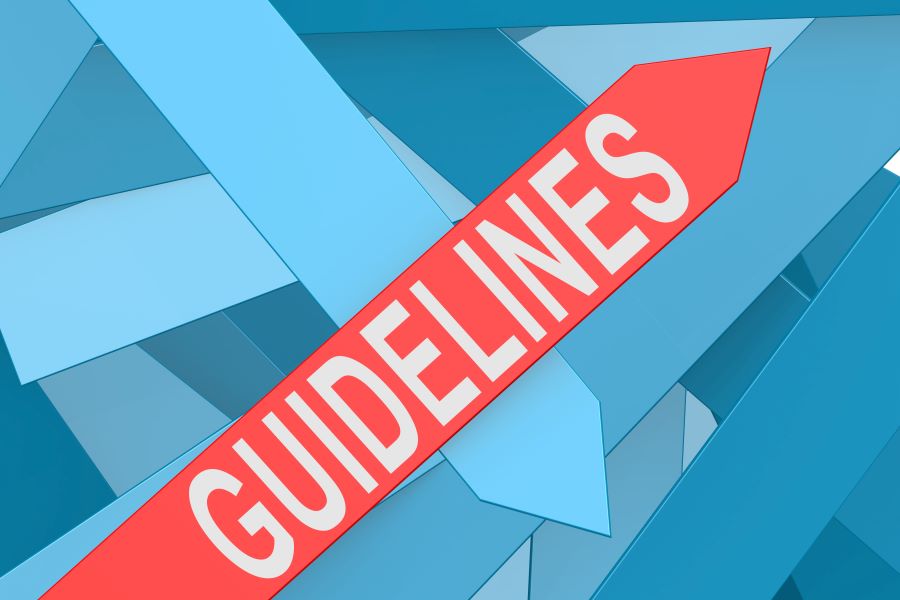Guidelines Business Owners Negative Google Reviews
As a business owner, your online reputation is crucial to your success. Negative Google Reviews can strike fear into the hearts of even the most determined entrepreneurs. But fear not! We’ve got the guidelines to help you navigate, confront, and minimize the effects of these unfavorable evaluations.
Guidelines for business owners confronting negative Google reviews:
To address negative Google reviews, businesses should regularly monitor their online reputation, respond with empathy and professionalism, offer solutions to the issues raised, invite reviewers to discuss further offline, and use the feedback for implementing improvements in their products or services. This approach helps maintain a positive reputation and fosters trust among consumers.

Are negative Google Reviews dragging your business down? Worry not we’ve got the ultimate guidelines to help you tackle this issue effectively. Read on to discover valuable tips and strategies that’ll improve your online reputation and help you attract more customers!
Contents
- 1 Strategies for Addressing Negative Google Reviews for Businesses
- 2 Appropriate Responses to Negative Google Reviews for Companies
- 2.1 • Understanding the Importance of Responding to Negative Reviews
- 2.2 • Tips for Responding to a Negative Google Review
- 2.2.1 1. Monitor Reviews Regularly
- 2.2.2 2. Stay Professional and Courteous
- 2.2.3 3. Offer a Sincere Apology
- 2.2.4 4. Investigate and Address the Issue
- 2.2.5 5. Provide a Solution or Resolution
- 2.2.6 6. Invite the Customer to Contact You Directly
- 2.2.7 7. Request Removal of Inappropriate Reviews
- 2.2.8 8. Emphasize the Positives
- 2.2.9 9. Encourage Happy Customers to Leave Reviews
- 2.2.10 10. Learn and Improve
- 2.3 • Conclusion
- 3 Countering Negative Google Reviews: Tips for Success
- 4 Business Owners’ Guide to Replying to Google Reviews
- 5 Handling Negative Reviews: A Business Owner’s Protocol
Strategies for Addressing Negative Google Reviews for Businesses
Negative Google reviews can create challenges for business owners, impacting their reputation and potentially affecting sales. However, it is important to remember that they also present opportunities to address these issues, learn from them and improve customer relationship management.
• Understand the Importance of Online Reviews
Before we delve into strategies for handling negative Google reviews, it’s important to acknowledge their significance in today’s digital landscape. According to research conducted by BrightLocal, 91% of consumers trust online reviews as much as personal recommendations, with 86% indicating they read reviews for local businesses.
With these statistics in mind, business owners must remain vigilant in addressing and managing negative reviews, as they may significantly influence potential customers’ perception of their products or services.
• Monitor Your Google Reviews
To effectively address negative Google reviews, staying informed about your online reputation is essential. Regularly monitoring your Google reviews will ensure that you are aware of any negative feedback and can promptly respond.
You can do this manually by periodically checking your Google My Business page or by using online reputation management tools to track reviews and receive notifications of new feedback.
• Respond with Empathy and Professionalism
When confronted with negative Google reviews, it is crucial to respond in a professional manner. You should acknowledge the customer’s feelings and experiences, expressing empathy and understanding toward their concerns.
Furthermore, remaining respectful and avoiding reacting with defensiveness, hostility, or condescension is important.
For example, your response may begin along the lines of:
“I’m truly sorry to hear that you had a negative experience with our service. Your feedback is valuable, and we appreciate you bringing this to our attention.”
• Address the Issue and Offer a Solution
After empathizing with the customer’s concerns, addressing the issue directly and providing a plausible solution or remedy is important. This demonstrates an effort on your part to rectify the problem and regain the customer’s trust. For instance:
“I understand that you were disappointed with the late delivery of your order. We have implemented stricter protocols with our shipping partner to prevent this from happening again to ensure timely delivery. Additionally, as a token of our apology, we would like to offer you a discount on your next purchase.”
By providing a solution, you address the negative reviewer’s concerns and demonstrate your commitment to customer satisfaction for potential customers reading the review.
• Invite the Reviewer to Discuss Further Offline
In some cases, negative Google reviews may entail complexities or details better suited for further offline discussion. This is crucial to maintain privacy and protect both the business and the reviewer from potentially harmful exposure.
To do this, provide contact information and encourage the reviewer to reach out for further assistance:
“Please feel free to contact our customer service team directly at [phone number] or [email address], and we will be happy to further assist you in resolving this issue.”
• Learn from the Feedback and Implement Changes
Finally, viewing negative Google reviews as opportunities for growth and improvement is important. Analyze the reviewer’s concerns and reflect on your business practices, identifying potential areas of weakness or room for enhancement.
If a particular issue persists or occurs frequently in reviews, consider implementing changes to address these concerns and improve overall customer satisfaction.
By treating negative Google reviews as a source of constructive feedback and implementing the guidelines discussed above, business owners can minimize the impact of these reviews on their reputation and use them as a platform to showcase their commitment to customer satisfaction, ultimately fostering trust and loyalty among consumers.
Appropriate Responses to Negative Google Reviews for Companies
Negative Google reviews can be a cause of concern for businesses, as they can potentially impact a company’s overall reputation and online presence. However, it is important to remember that any business, regardless of size or industry, will likely receive negative feedback.
The key is to handle these reviews effectively to mitigate any potential damage and show potential customers that your business is committed to providing excellent customer service.
• Understanding the Importance of Responding to Negative Reviews
Regardless of the nature of the negative review, businesses should understand that responding promptly and professionally is crucial. According to a study by Harvard Business School, a single negative review can lead to a 5% to 9% decrease in a business’s revenue.
This highlights the importance of managing and responding to negative reviews in a timely manner.
Moreover, by addressing negative reviews, businesses can demonstrate their commitment to customer satisfaction and showcase their ability to handle customer feedback. This not only helps rebuild trust with the aggrieved customer but also assuages potential customers who might be deterred by the negative review.
• Tips for Responding to a Negative Google Review
1. Monitor Reviews Regularly
Regularly monitoring and staying informed about the reviews your business receives is crucial in order to address any negative feedback promptly. Google provides notifications when new reviews are posted, but it is also important to manually check your business’s review pages to ensure that no feedback goes unnoticed.
2. Stay Professional and Courteous
When responding to a negative review, it is essential to maintain a professional and courteous tone. Avoid getting defensive, and instead, focus on addressing the customer’s concerns and demonstrating that your business values their feedback.
3. Offer a Sincere Apology
An apology goes a long way in defusing a negative situation. Acknowledge the customer’s concerns by offering a sincere apology for the inconvenience they experienced. This shows empathy and a willingness to take responsibility for any shortcomings.
4. Investigate and Address the Issue
Take the time to investigate the specific issues raised in the negative review, and consider making any necessary changes to your business processes. Be proactive in addressing the issue, even if you think it might be an isolated incident.
5. Provide a Solution or Resolution
Offer a solution or resolution to the customer’s concern, demonstrating that your business is committed to making things right. This might include offering a refund, replacement, or future discount, depending on the nature of the issue.
6. Invite the Customer to Contact You Directly
Provide contact details (phone number or email address) for the customer to get in touch with a representative of the business to discuss their concerns in more detail. This takes the conversation offline, which is often more productive and allows for a more personalized approach to resolving the issue.
7. Request Removal of Inappropriate Reviews
If a review violates Google’s review policies, such as being offensive, discriminatory, or unrelated to the actual experience with the business, you can flag the review for removal. This should only be done in exceptional circumstances and not as a method to remove valid criticism.
8. Emphasize the Positives
Highlight the positive aspects of your business in your responses, showcasing your commitment to customer satisfaction and continuous improvement. This helps create a balanced view of your business for potential customers reading the reviews.
9. Encourage Happy Customers to Leave Reviews
Having a larger volume of positive reviews can help minimize the impact of negative reviews. Encourage satisfied customers to share their positive experiences on Google by giving them easy instructions on leaving a review.
10. Learn and Improve
Finally, see negative reviews as an opportunity for improvement. Analyze the feedback received and develop strategies to improve your business going forward.
• Conclusion
Negative Google reviews may seem daunting, but by taking the right approach in responding to them, businesses can mitigate their impact and even turn a negative situation into a positive learning opportunity.
By demonstrating professionalism, empathy, and a commitment to customer satisfaction, businesses can effectively manage their online reputation and ensure the continued success of their enterprise.
Countering Negative Google Reviews: Tips for Success
As an experienced professional in managing and improving online reputations, I can attest that dealing with negative Google reviews can be daunting for any business. Nonetheless, it’s essential to understand and effectively handle these reviews to maintain and improve your online reputation.
• The Importance of Online Reviews
Online reviews play a crucial role in shaping a company’s reputation and influencing potential customers’ decisions. According to a study from BrightLocal, 82% of consumers read online reviews for local businesses.
This statistic emphasizes the need for businesses to be proactive in managing their online reviews, as negative reviews can severely impact their bottom line.
• Monitor Your Google Reviews
Before you can fight negative reviews, you need to be aware of them. Regularly monitoring and checking your Google reviews is the first step in combating detrimental feedback.
I recommend using Google Alerts to receive notifications when new reviews are posted about your business. Alternatively, you can manually check your Google My Business page for updates.
• Respond to Negative Reviews Professionally
When dealing with negative reviews, your response is critical. Here’s how to respond professionally and effectively:
– Be Prompt
It’s essential to act promptly when responding to negative reviews. Potential customers will appreciate your timely response, demonstrating that you care about their experience.
– Stay Calm and Professional
Regardless of the complaint, maintain a calm and professional demeanor in your response. Keep your emotions in check and avoid using defensive language.
– Apologize and Empathize
Begin your response by apologizing for the negative experience, and demonstrate empathy for the customer’s situation. This shows that you genuinely acknowledge and understand their concerns.
– Offer a Solution
Proposing a resolution can help to amend the situation and regain the customer’s trust. Whether it’s a refund, discount, or another solution, be sure to mention specific steps you’re taking to rectify the issue.
– Take Conversations Offline
If necessary, provide contact information for the customer to reach out to you directly to discuss the problem further, keeping the conversation private and focused on finding a resolution.
• Request Reviews from Satisfied Customers
An effective way to combat negative reviews is to encourage happy customers to leave positive feedback. This can help improve your overall rating and create a buffer against the impact of negative reviews.
Ask customers for reviews via email, social media, or in person. You may also want to consider using tools like ReviewTrackers or RepuGen to automate the review request process.
• Flag Inappropriate Reviews
Sometimes, negative reviews may violate Google’s guidelines, such as containing abusive language, false information, or spam. In these cases, you can flag the review for removal by Google.
It’s important to note that the process can take some time, and Google may not remove every flagged review. Nevertheless, it’s worth pursuing if you believe the review is inappropriate or violates Google’s guidelines.
• Learn and Improve from Negative Reviews
Although it’s essential to fight negative reviews, it’s equally crucial to learn from them. Pay close attention to recurring issues and use this feedback to make improvements within your business.
By addressing these concerns and continuously working to enhance your customers’ experience, you’ll reduce the likelihood of future negative reviews and ultimately boost your online reputation.
• Conclusion
Online reviews can significantly impact a business’s success in today’s digital landscape.
By monitoring and responding professionally to negative reviews, requesting feedback from satisfied customers, flagging inappropriate reviews, and learning from customer feedback, you can effectively combat negative Google reviews and protect your online reputation.
Remember, the key is to be proactive, professional, and focused on creating the best experience for your customers.
Business Owners’ Guide to Replying to Google Reviews
As a business owner, managing your online presence has become increasingly important in today’s competitive landscape. One area that is often overlooked is the ability to respond to Google reviews left by your customers.
As a matter of fact, engaging with your customers through Google reviews can help enhance your reputation and improve your business based on their valuable feedback.
• The Importance of Responding to Google Reviews
– Boost your Business Reputation
When customers evaluate a new product or service, they typically rely on online reviews to help make their decision. Responding to reviews demonstrates that you value your customers’ opinions and care about their experiences, consequently building trust with prospective customers.
– Improve Local SEO
Google uses reviews as a ranking factor for local search results. By responding to reviews, you signal to the search engine that you are an active and engaged business owner, which can positively impact your local search rankings.
– Address Negative Reviews
Every business will experience negative reviews at some point. Responding to those reviews professionally and empathetically can help defuse the situation and even encourage the reviewer to reevaluate their initial assessment.
– Gain Valuable Insight
Customers who leave reviews often highlight the strengths and weaknesses of your products or services. Engaging with them can help you identify areas for improvement and demonstrate that you are receptive to their feedback.
• How to Respond to Google Reviews
Step 1: Claim or Verify your Business on Google My Business
Before you can respond to reviews, you must first claim or verify your business on Google My Business. This allows you to manage your business’s presence on Google Maps and search results, including reviews.
To get started, visit the Google My Business website and follow the prompts to claim or verify your business. This process usually takes a few days to complete.
Step 2: Monitor and Receive Notifications for New Reviews
Once your business is claimed and verified, it’s important to keep an eye on new reviews as they come in. You can receive notifications for new reviews by enabling them in your Google My Business settings.
- Sign in to your Google My Business account.
- Click on the three horizontal lines in the top left corner to open the Menu.
- Select “Settings” from the Menu.
- Under “Notifications,” toggle “Reviews” on.
With notifications enabled, you’ll receive an email when a new review is submitted for your business.
Step 3: Respond to Reviews
Now that you’re set up to monitor reviews, it’s time to start responding to them. Here are some general tips to consider when crafting your responses:
- Be professional and respectful, regardless of the tone or content of the review.
- Personalize your response by using the reviewer’s name and addressing specific points they raised.
- Thank the reviewer for their feedback, whether positive or negative.
- Address any issues or concerns and, if appropriate, provide a solution, such as inviting the customer to contact you directly to resolve the issue.
- Keep your responses concise and to the point.
To respond to a review:
- Sign in to your Google My Business account.
- Click on the “Reviews” tab on the left-hand side of the page.
- Locate the review you want to respond to and click “Reply.”
After submitting your response, it will be publicly visible below the original review.
• Conclusion
Responding to Google reviews is an essential practice for business owners. It can enhance your business’s reputation, improve local SEO, help you address negative reviews, and provide valuable insight into your products and services.
Claiming or verifying your business on Google My Business, monitoring reviews, and engaging with customers professionally can contribute to your overall success.
For more information about managing your business’s online presence, consider visiting resources from reputable organizations like the Small Business Administration or the Better Business Bureau.
Handling Negative Reviews: A Business Owner’s Protocol
As a business owner, receiving negative feedback or bad reviews online can feel disheartening, especially if you invest significant time and effort into providing excellent products or services. However, it is crucial to understand that negative reviews are inevitable and will ultimately happen to every business.
The critical question is not whether you should receive them, but rather, should you respond to them?
Let’s explore the importance of responding to bad reviews, best practices for handling negative feedback, and how it can impact your business’s reputation and growth.
• The Importance of Responding to Negative Reviews
Addressing negative feedback is vital to managing your business’s online reputation. In today’s digital age, where the majority of consumers rely on online reviews to make purchase decisions, having poor online reviews can significantly impact the success of your business.
Here are some key reasons why responding to negative reviews is essential:
– Enhance Your Brand’s Image
By responding to negative reviews, you take control of your brand’s narrative and demonstrate a commitment to customer service. This helps maintain trust with your existing clientele and positively influences potential customers who are considering your business.
– Turn Unhappy Customers into Loyal Advocates
Negative reviews often stem from a customer’s dissatisfaction with a specific aspect of your business. You can resolve the issue by addressing their concerns directly and promptly and potentially turn a disgruntled customer into a loyal advocate.
– Continuous Improvement
Responding to negative reviews enables you to evaluate and learn from customer feedback. It can help you pinpoint areas where improvements are required and implement necessary changes for your business’s continued growth and success.
• Best Practices for Responding to Negative Reviews
Now that we’ve established the importance of addressing bad reviews, let’s discuss some best practices for responding to these reviews effectively.
– Respond Promptly
Customers expect timely responses to their concerns. By promptly addressing negative reviews, you display a sense of urgency and demonstrate that their feedback is valued.
– Be Professional and Polite
Regardless of the reviewer’s tone or the validity of the complaint, always respond with professionalism and politeness. Acknowledge the issue, express empathy, and offer a resolution or assistance moving forward.
– Personalize Your Responses
Avoid using cookie-cutter responses, as they may come off as insincere. Instead, tailor your reply to address the specific concerns mentioned in the review.
– Take the Conversation Offline
If possible, provide options to continue the conversation privately, such as a direct message, email or phone call. This allows for a more in-depth resolution without airing the details publicly.
– Monitor and Analyze Reviews on All Platforms
Different customers use different platforms to leave feedback. Make sure you’re aware of reviews across all platforms to ensure no negative review goes unaddressed.
• Real-Life Examples of Effective Responses to Negative Reviews
To better understand the impact of addressing negative reviews, here are some real-life examples of businesses that have transformed bad experiences into positive outcomes:
- A restaurant in San Francisco publicly apologized for an unsatisfactory dining experience, invited the customer back for a complimentary meal, and shared the steps they took to improve the quality of their food. This response not only won the customer back but also showed potential customers that the restaurant was dedicated to continuous improvement.
- An online retailer consistently responded to negative reviews by offering refunds, replacement products, or discounts on future purchases. This gesture went a long way in mending relationships with unhappy customers and promoting positive word-of-mouth.
By incorporating these best practices into your review response strategy, you can ensure that negative feedback is swiftly addressed and damage control measures are put in place to maintain your brand’s reputation.
• In Conclusion
Undeniably, receiving negative reviews can be distressing for any business owner. However, they present an opportunity to grow and develop your business while simultaneously enhancing your online reputation. By effectively responding to negative reviews and making necessary improvements, you can turn unhappy customers into loyal advocates, attract new clientele, and significantly increase your business’s success.
For further guidance on handling negative reviews, visit the Small Business Administration’s guide on managing online reputation and growth strategies for small businesses.







